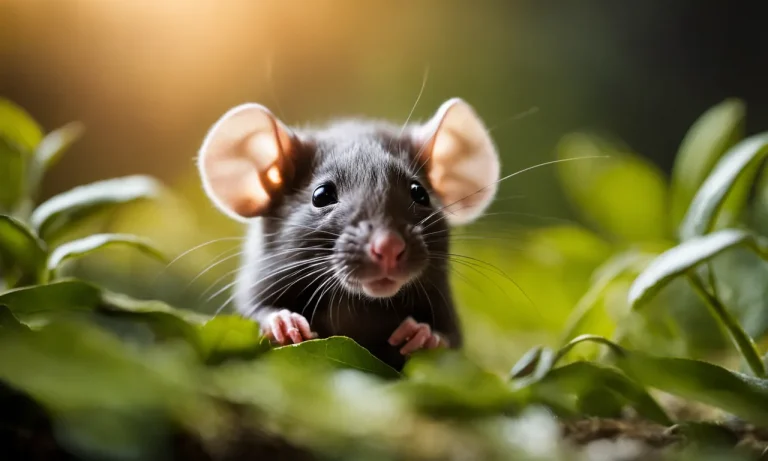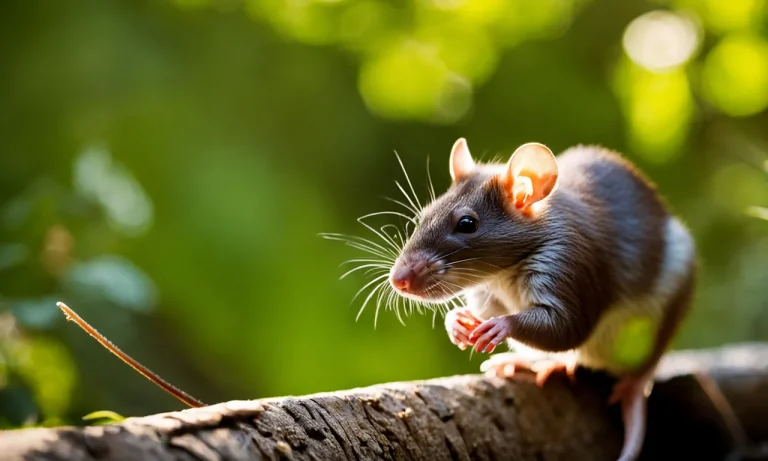Goats are adorable, quirky animals that can make great pets. But are goats high maintenance? If you’re short on time, here’s a quick answer to your question: Goats do require more care and maintenance than some other domesticated animals.
However, with proper facilities, a good diet, and attentive care, goats can thrive and be very rewarding pets.
In this comprehensive guide, we’ll cover everything you need to know about the care and keeping of goats. We’ll look at their basic needs like housing, feeding, health care and more. We’ll also discuss factors that contribute to how labor intensive and demanding owning goats can be.
Read on for the complete scoop on what’s required to keep goats happy and healthy.
Housing Requirements for Goats
When it comes to housing goats, there are a few key requirements that need to be taken into consideration. Providing a suitable shelter, adequate space, and appropriate enrichment are all essential for the well-being and happiness of these animals.
Shelter
Goats need a shelter that protects them from extreme weather conditions, such as rain, wind, and high temperatures. A sturdy and well-ventilated structure, like a barn or a shed, is ideal for providing them with a safe and comfortable space to rest and seek shelter when needed.
It should have good drainage to prevent dampness and be easy to clean to maintain proper hygiene.
Additionally, it’s important to ensure that the shelter is spacious enough to accommodate all the goats comfortably. Each goat should have enough room to move around, lie down, and stretch without feeling cramped.
Providing separate areas for feeding and resting can also help promote a peaceful and stress-free environment.
Space and Fencing
Goats are active animals that require ample space to roam and graze. The amount of space needed depends on the number of goats and their breed. As a general rule of thumb, a minimum of 200 square feet per goat is recommended, but more space is always better.
Proper fencing is crucial to keep goats within their designated area and protect them from potential predators. Fencing should be secure and tall enough to prevent goats from jumping over it. Electric fencing can be an effective option, especially for more adventurous or mischievous goats.
Enrichment
Goats are intelligent and curious animals that thrive when provided with mental and physical stimulation. Enrichment activities can include providing them with access to different types of vegetation, such as browse or hay, as well as offering toys or structures for climbing and playing.
Introducing variety in their environment, such as different textures and objects to explore, can help prevent boredom and promote overall well-being. It’s important to regularly assess and rotate enrichment items to maintain their effectiveness.
Remember, goats are social animals and should not be housed alone. They require companionship from other goats or even other compatible farm animals. Providing them with a suitable social environment will contribute to their overall happiness and reduce the likelihood of behavioral issues.
For more detailed information on housing requirements and best practices for goats, you may refer to resources such as the Iowa State University Extension and Outreach or the National Academies Press.
Feeding and Nutrition
When it comes to keeping goats, one of the most important aspects to consider is their feeding and nutrition. Proper nutrition is essential for their overall health and well-being. Here are some key points to keep in mind:
Water
Just like any other animal, goats need access to clean and fresh water at all times. Water is vital for digestion, milk production, and temperature regulation. Make sure to provide a sufficient and easily accessible water source for your goats.
It is recommended to have a minimum of 1-2 gallons of water per goat per day.
Forage and Browse
Goats are natural foragers and browsers, which means they enjoy eating a variety of plants, leaves, and shrubs. They have a unique ability to digest a wide range of plant materials, including weeds and brush.
Providing ample forage and browse options not only keeps them entertained but also ensures they receive the necessary nutrients. This can include offering access to pastures, allowing them to graze, or providing them with hay or other types of forage.
Grains and Supplements
In addition to forage and browse, goats may require grains and supplements to meet their nutritional needs. This is especially important for pregnant or lactating does, as well as growing kids. Grains such as oats, barley, and corn can be provided in moderation to supplement their diet.
It’s essential to consult with a veterinarian or a goat nutritionist to determine the appropriate amount and type of grains and supplements for your goats.
Remember that the nutritional requirements of goats can vary depending on their age, reproductive status, and overall health. It’s always best to consult with experts or refer to reputable sources such as extension.umn.edu or fiascodesigns.com for comprehensive guidelines on goat feeding and nutrition.
Grooming and Hoof Care
Proper grooming and hoof care are essential for maintaining the health and well-being of your goats. Regular grooming not only keeps your goats looking neat and clean, but it also helps prevent the buildup of dirt, debris, and parasites.
Hoof Trimming
One important aspect of goat grooming is hoof trimming. Goats’ hooves grow continuously, and if left unattended, they can become overgrown and lead to various health issues. Overgrown hooves can cause discomfort, lameness, and even infections.
It is recommended to trim your goats’ hooves every 4-6 weeks to maintain their proper shape and length.
When trimming the hooves, it is crucial to be cautious and avoid cutting too close to the quick, which is the sensitive part of the hoof. If you are unsure about how to trim goat hooves, it is best to seek guidance from a veterinarian or an experienced goat owner.
Bathing and Brushing
While goats are generally clean animals, there are occasions when they may require a bath. Bathing your goats helps remove dirt, grime, and parasites from their coats, keeping them healthy and comfortable.
When bathing a goat, it is important to use mild, goat-safe shampoo and warm water. Avoid getting water into their ears, as it can cause infections. After bathing, make sure to thoroughly dry their coats to prevent chilling.
Regular brushing is also an essential part of grooming goats. Brushing helps remove loose hair, dirt, and debris from their coats, preventing matting and keeping their skin healthy. It also promotes better blood circulation and stimulates the production of natural oils that keep their coats shiny and healthy.
Shearing
Shearing is the process of removing the fleece or hair from a goat’s body. While shearing is more commonly associated with sheep, some goat breeds also require shearing, especially those with long, thick coats.
Shearing is typically done in the spring or early summer when temperatures rise, and goats no longer need their winter coats for insulation. Shearing helps keep goats cool during hot weather and prevents them from overheating. It also makes it easier to spot any skin issues or parasites.
It is important to note that not all goat breeds require shearing. Some breeds naturally shed their hair or have shorter coats that do not require regular shearing. If you are unsure whether your goats need shearing, consult with a veterinarian or a breed-specific expert.
Health Management
When it comes to goats, taking care of their health is crucial to ensure their well-being and productivity. This section will cover important aspects of health management, including vaccinations, parasite control, and reproduction and kidding.
Vaccinations
Vaccinations play a vital role in preventing diseases and protecting the overall health of your goats. It is recommended to consult with a veterinarian to develop a vaccination schedule tailored to your goat’s specific needs. Generally, common vaccines for goats include:
- Tetanus Toxoid: Protects against tetanus, a potentially fatal bacterial infection.
- Clostridium Perfringens Types C and D Antitoxin: Prevents enterotoxemia, a severe and often fatal condition.
- Rabies: Guards against rabies, a deadly viral disease.
- Caseous Lymphadenitis (CL): Prevents CL, a highly contagious bacterial infection.
It’s important to note that vaccination requirements may vary depending on your location and the specific diseases prevalent in your area. Stay updated with the latest recommendations from veterinary professionals and government authorities.
Parasite Control
Goats are susceptible to internal and external parasites, which can negatively impact their health and productivity. Implementing a parasite control program is vital to keep these pesky critters at bay. Here are some strategies for effective parasite control:
- Deworming: Regularly deworm your goats using appropriate medications under the guidance of a veterinarian.
- Pasture Rotation: Practice rotational grazing to minimize parasite infestations in the pasture.
- Sanitation: Maintain clean and dry living conditions for your goats, as parasites thrive in damp environments.
- Monitoring: Keep a close eye on your goats for signs of parasite infestation, such as weight loss, diarrhea, and poor coat condition.
Remember, each goat breed and individual may have different parasite susceptibility, so it’s essential to tailor your parasite control program accordingly.
Reproduction and Kidding
Managing the reproductive health of your goats is crucial if you plan on breeding them. Here are some key considerations:
- Breeding: Properly time the breeding of your goats, considering factors like age, breed, and health.
- Pregnancy Care: Provide proper nutrition, regular veterinary check-ups, and a stress-free environment for pregnant goats.
- Kidding: Prepare a clean and comfortable kidding area, and be ready to assist if necessary. Monitor the health of both the mother and the newborn kids closely.
It’s worth mentioning that reproductive health can have a significant impact on the overall health and productivity of your goats. Consulting with an experienced veterinarian or a goat breeding expert can provide invaluable guidance in this area.
For more detailed information on goat health management, you can visit websites like extension.umn.edu or ars.usda.gov.
Day-to-Day Care and Supervision
Proper day-to-day care and supervision are essential for goats to thrive and stay healthy. Whether you have a small backyard herd or a larger farm, it’s important to provide them with the necessary care and attention they need.
This section will cover the various aspects of day-to-day care and supervision for goats.
Feeding and Watering
Feeding goats a balanced diet is crucial for their overall health and well-being. They are known to be browsers and require a variety of forage, such as grass, leaves, and shrubs. Additionally, providing them with quality hay and a formulated goat feed will help meet their nutritional needs.
It’s important to ensure that they have access to fresh, clean water at all times.
Milking (for dairy goats)
If you have dairy goats, milking becomes an important part of their daily care routine. Milking should be done in a clean and hygienic environment to prevent the risk of contamination. Dairy goats should be milked at regular intervals, usually twice a day, to maintain their milk production.
Proper sanitation practices and regular health checks are crucial to ensure the quality and safety of the milk.
Cleaning
Cleanliness is of utmost importance when it comes to goat care. Regularly cleaning their living area, including their shelter and feeding troughs, helps maintain hygiene and prevent the spread of diseases. It’s also important to keep their hooves trimmed to avoid any discomfort or mobility issues.
Exercise and Enrichment
Goats are active animals that require regular exercise and mental stimulation. Providing them with ample space to roam and graze is essential for their well-being. Additionally, incorporating enrichment activities, such as climbing structures and toys, can help keep them mentally stimulated and prevent boredom.
👍 It’s important to note that the specific care and supervision requirements may vary depending on the breed, age, and purpose of keeping goats. Consulting with a veterinarian or experienced goat owners can provide valuable insights and guidance for the day-to-day care of goats.
Conclusion
Goats are fun, intelligent creatures that can make for lively and rewarding pets. However, they do require an investment of time, effort and resources to keep them healthy and happy. By providing the proper housing, nutrition, health care, grooming and daily supervision, goats can thrive under human care.
For those willing to put in the required work, goats can be a joy to own.






